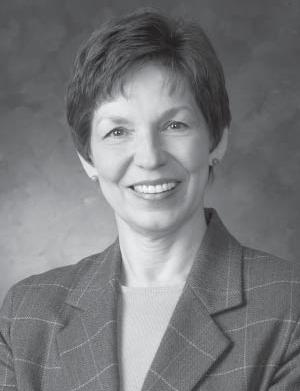
2 minute read
A Letter from
from PROGRESS Spring 2010
by VALRC
A Letter from OAEL Director Elizabeth Hawa
As I prepare to retire as your director in the Office of Adult Education and Literacy (OAEL), I will have the comfort of knowing that adult education in Virginia has moved on to another stage in the program improvement chain of development. At OAEL, we have set forth high expectations, as articulated in the Operational Guidance Manual for Virginia Adult Education and Literacy Programs and the new monitoring and evaluation system consisting of desk audits, program performance report cards, and a standardized on-site monitoring process. Tom Suh has made an excellent contribution to this issue of Progress by providing a comprehensive description and rationale for the report cards and future plans for this measurement of program strengths and weaknesses. The development of GED® and ESOL standards and the Virginia Adult Educator Certification Program as well as our strong goal-setting and assessment policies have added significantly to the expectations set forth by staff at the state level. And, the bottom line is program improvement!
What are some of the program improvement strategies being implemented locally? A sampling of those strategies are highlighted in this issue of Progress. Annette Loschert with Literacy Volunteers of the Roanoke Valley describes her approach in the Roanoke area—increase instructional intensity and create an environment to foster active learning. She has the results to prove her success, with an increase of 157 percent in the number of adult learners making gains. Bonnie Mizenko’s recognition of the importance of hiring and then nurturing a strong staff is indicative of her wisdom as the program leader in Virginia Beach. She talks about “inspiring your staff” and keeping them connected to the larger goal and mission, reminding us that, like our learners, teachers must also be motivated. Finally, Amy O’Shell tells us that in Page County they have “paid more attention to our data,” and it has reaped benefits for the program.
As we approach reauthorization and the increasing emphasis on workforce development, I believe Virginia will be able to step forward ready to meet the challenges because of the work these practitioners and others of you have accomplished in this journey called “program improvement.” I leave you knowing that the resources are there and the structure is in place to develop an even stronger adult education and literacy program in Virginia. You know where you need to go, and you are learning more about what it takes to get there. Thank you for the privilege of traveling with you on the journey!
Godspeed and best wishes,





